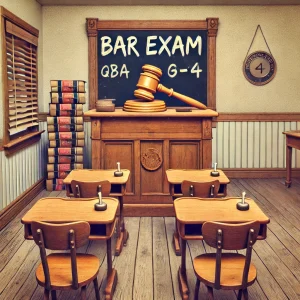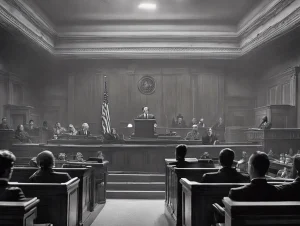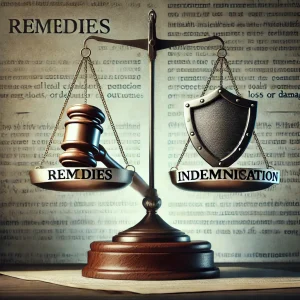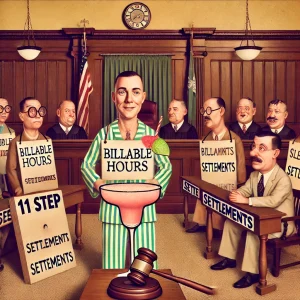On November 4, 1963, the world heavyweight champion was Charles “Sonny” Liston. Liston had a powerful build and an intimidating demeanor. He was a hard man to like, but experts respected his ability in the ring. They believed he was just too tough and strong to be beat. Though most people don’t know it, Liston lived in Denver. He owned in a nice home in an otherwise all-white neighborhood on Monaco Parkway in Denver.
In the summer of 1960, a young man named Cassius Clay won the Gold Medal in heavyweight boxing at the Olympics in Rome. The brash young man then began a professional career that put him on a collision course with Liston. After beating Archie Moore and Henry Cooper, Clay had earned a shot at the title.
Liston did not want to fight Clay. He did not like Clay’s antics and he likely knew that Clay could be trouble in the ring. Liston liked to slug it out with his opponents. But a fighter like Clay would not stand toe to toe with Liston; Clay would move a lot, jab a lot, and stay outside where Liston’s power could not hurt him.
With Liston in no hurry to fight Clay, Clay began a public campaign to force Liston to give him a shot at the title. Clay publicly insulted Liston, repeatedly referring to him as, “the big ugly bear.” Clay repeatedly harassed Liston and accused Liston of ducking him.
By 1963, the public pressure on Liston to give the bras kid from Kentucky a shot at the title was immense. That was the fight the people wanted to see. After much negotiation, Liston and Clay agreed to fight. The fight contract was to be signed in Denver on November 5, 1963. And that brings us back to the date I began this column with – the day before the contract signing.
Clay had to get from Chicago to Denver to sign the contract, so he chartered a bus. On one side of the bus was painted, “WORLD’S MOST COLORFUL FIGHTER: CASSIUS CLAY.” On the other side, “SONNY LISTON WILL GO IN EIGHT.’’
After making a few calls the Denver newspapers and radio stations, Clay and his pals rolled into Denver on the evening of November 4, 1963. According to the Denver Post, Clay and his entourage first drive through Denver’s 5 Points neighborhood – a black neighborhood – looking for Liston. Residents gawked as Clay put on a show. Asked what he was doing, Clay shouted, “I’m bear hunting. Liston’s too ugly to be champ. The champ should be pretty like me.” Residents told Clay that Liston did not live in 5 Points; they directed him to Liston’s home on the Monaco Parkway in Denver’s Park Hill neighborhood.
Sometime around 3:00 a.m., Clay’s bus pulled up to Liston’s home. Clay exited his bus and immediately began shouting. He sent his photographer to knock on Liston’s door while another friend honked the horn on the bus. The entire neighborhood was soon wide awake.
Liston opened the door wearing polka-dotted pajamas and brandishing a fireplace poker. Clay challenged Liston to come out and fight, but five police cruisers arrived almost immediately. When the ruckus ended, Clay and his friends boarded the bus bound for a local hotel.
Liston and Clay signed the contract the next day at a Denver hotel. Las Vegas established Liston as a 7 to 1 favorite. On February 25, 1964, in Miami, Liston and Clay entered the ring, the winner to be the undisputed heavyweight champion of the world. The quicker Clay ran circle around Liston and peppered his face with jabs. By the end of the sixth round, Liston’s face was covered with cuts and bruises. Liston refused to come out for the seventh round and Clay became the heavyweight champion. The next day he announced he was a member of the Nation of Islam and had changed his name to Muhammad Ali. Many of you know the rest of the story.
Ali returned to Denver one other time. It was fifteen years later, and a lot had happened in those fifteen years -– the JFK assassination, the Beatles, Vietnam, the moon landing, Watergate, and the energy crisis. In the summer of 1979, Ali fought the most famous man in Denver – Broncos’ defensive end Lyle Alzado – in a charitable exhibition at Mile High Stadium. The fight did not raise as much money as Alzado’s charity had hoped, but tens of thousands of fans got to see the heavyweight champion, who was arguably the most famous man on the planet.
Ali became an outspoken critic of the Vietnam War and a leader of the black civil rights movement. He also became the first man ever to win the heavyweight championship three times. He lit the Olympic torch in Atlanta in 1996. He died on June 3, 2016. Rest in peace, champ.





